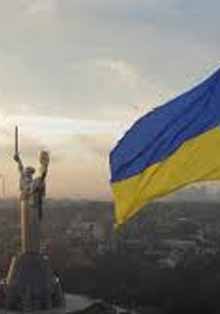José Manuel Corrales
Professor of Economics and Business at Universidad Europea
Ukraine announced this week the suspension, due to force majeure, of the use of a Russian gas pipeline that distributes gas to Europe. The Ukrainian Gas Transmission System Operator has claimed security reasons and has stated that the violence of the Russian Army in Ukrainian lands is preventing the normal stability of the gas distribution system.
This is the first time since the beginning of the war conflict that the flows of Russian gas entering Europe via Ukraine have been interrupted, posing a real threat to energy supplies. This stoppage, which has occurred at the Novopskov station in the Lugansk region of Ukraine, in the Donbas area, could compromise up to a third of the total supply transiting to Europe from Russia, being reduced by 24 million cubic meters in a single day (from 96 million cubic meters supplied on Tuesday, May 10, to 72 million cubic meters on Wednesday, May 11).
The Yamal-Europe pipeline, which runs through Belarus and Poland, has an annual gas transport capacity of 33 billion cubic meters. This capacity is less than the 55 billion cubic meters pumped through the Nord Stream 1 pipeline, the main pipeline affected by the outage announced this week, which directly connects Russia and Germany.
The Ukrainian government has blamed Putin for the decision, claiming that they cannot guarantee the operability of the pipeline by claiming that the supply should be diverted to another transit point, although the Russian gas company Gazprom has already rejected this as allegedly impossible.
While Ukraine announces these supply cuts, European countries such as Belgium have doubled the shipment of liquefied natural gas to avoid shortages, since storage facilities in the EU are currently only at one third of their capacity. It should be noted that more than 41% of the natural gas consumed in the EU comes from Russia, which is also its main supplier of crude oil and fossil fuels.
The situation has added tension to markets already excited since the beginning of the war, especially since April 27 when Russia turned off the gas tap to Bulgaria and Poland because they had not paid in rubles (54.8% of the gas consumed by Poland is Russian, and in Bulgaria it amounts to 80%), and thus we have seen how the price of natural gas in the Dutch market has increased more than 10% only in ten days of May.
As the European Union has already banned the import of Russian coal, next on the list of sanctions and restrictions would be Russian oil (if the Hungarian ally Orban allows it) and last would be gas. But European countries, such as Germany and Austria, are not ready to end dependence on Russian gas, which makes a common position very difficult.
Russia and Ukraine are transferring to the economic field the war conflict in a hybrid war. Russia, in addition to intensifying its invasion of southern and eastern Ukraine by turning off the gas tap to Poland and Bulgaria and its military operations in energy supply infrastructures, is making a clear challenge to the European Union.
The war conflict in Ukraine has already significantly affected the European economy, with inflationary dynamics in the markets, energy price increases, and strong effects on the distribution chain.
Fortunately, the agreed Iberian exceptionality has been implemented, which will allow Spain and Portugal to cap gas prices at an average of 50 euros per megawatt/hour for the next 12 months. In addition to lowering electricity bills, the measure will also help to reduce inflation, with a positive knock-on effect on the economy as a whole. The agreement can reduce the electricity bill for an average consumer on the regulated tariff by approximately 30%.
By cutting off supplies, Russia is blackmailing the EU with a violation of contracts, which is trying to impose an irregular payment scheme in rubles through third parties without clearly guaranteeing supplies. In the short term, liquefied gas is not an alternative to fully replace Russian gas supplies, although it can help to partially alleviate European energy dependence.
These energy supply cut-off announcements will intensify the downturn in European business and consumer confidence. Gasoline, electricity and other commodities have already reached record highs in these 80 days of war. Gas and oil prices now seem to be stabilizing, but at higher levels than before the invasion, which has led to a sharp increase in the cost of living. This situation is going to be a drag on the economic recovery and growth forecasts have been revised downwards. The coming winter is likely to be very harsh and harsh, with possible rationing of household heating and European industrial production.
© All rights reserved






